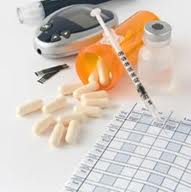Managing diabetes is a continuous challenge that requires constant attention and effort. With proper management and care, people living with diabetes can lead healthy and productive lives. We will share some useful diabetes control tips to help you manage your diabetes.
Understanding Diabetes
Before we dive into the tips, it is essential to have a basic understanding of what diabetes is. Diabetes is a chronic condition characterized by high levels of sugar (glucose) in the blood. There are two types of diabetes: Type 1 and Type 2.
Type 1 diabetes is an autoimmune disorder where the body attacks the cells in the pancreas responsible for producing insulin. Insulin is a hormone that regulates blood sugar levels. People with Type 1 diabetes must take insulin daily to maintain healthy blood sugar levels.
Type 2 diabetes is the most common form of diabetes. It occurs when the body becomes resistant to insulin or does not produce enough insulin. Type 2 diabetes can often be managed with lifestyle changes, including diet and exercise. In some cases, medication may be necessary to control blood sugar levels.
Now that we have a basic understanding of diabetes let’s dive into some useful tips for controlling it.
 Tip #1: Monitor Blood Sugar Levels
Tip #1: Monitor Blood Sugar Levels
One of the most crucial aspects of diabetes management is monitoring blood sugar levels. Regularly checking your blood sugar levels can help you identify trends and patterns that can affect your diabetes management. You can monitor your blood sugar levels at home using a glucometer. Your healthcare provider can recommend how often you should check your blood sugar levels based on your diabetes management plan.
What’s the best treatment for low blood sugar? Find out here!
 Tip #2: Eat a Healthy Diet
Tip #2: Eat a Healthy Diet
Eating a healthy diet is essential for people living with diabetes. A healthy diet can help you maintain healthy blood sugar levels and prevent complications associated with diabetes. A healthy diet should consist of whole foods such as fruits, vegetables, whole grains, lean protein, and healthy fats. Avoid processed foods, sugary drinks, and foods high in saturated and trans fats.
 Tip #3: Stay Active
Tip #3: Stay Active
 Exercise can help lower blood sugar levels, improve insulin sensitivity, and maintain a healthy weight. Regular exercise can also help reduce the risk of heart disease, which is a common complication of diabetes. Aim for at least 30 minutes of moderate-intensity exercise most days of the week. Consult with your healthcare provider before starting an exercise routine, especially if you have any diabetes-related complications.
Exercise can help lower blood sugar levels, improve insulin sensitivity, and maintain a healthy weight. Regular exercise can also help reduce the risk of heart disease, which is a common complication of diabetes. Aim for at least 30 minutes of moderate-intensity exercise most days of the week. Consult with your healthcare provider before starting an exercise routine, especially if you have any diabetes-related complications.
The importance of exercise for diabetes – read more about it here!
 Tip #4: Take Medications as Prescribed
Tip #4: Take Medications as Prescribed
If your healthcare provider has prescribed medication to manage your diabetes, it is essential to take them as prescribed. Taking your medications regularly and on time can help you maintain healthy blood sugar levels and prevent complications associated with diabetes.
 Tip #5: Manage Stress
Tip #5: Manage Stress
Stress can affect blood sugar levels, making it difficult to manage diabetes. Managing stress is essential for people living with diabetes. There are several ways to manage stress, including exercise, meditation, deep breathing, and mindfulness.
 Tip #6: Get Enough Sleep
Tip #6: Get Enough Sleep
Getting enough sleep is essential for people living with diabetes. Lack of sleep can affect blood sugar levels, making it difficult to manage diabetes. Aim for 7-8 hours of sleep per night.
 Tip #7: Quit Smoking
Tip #7: Quit Smoking
Smoking can increase the risk of complications associated with diabetes, including heart disease, kidney disease, and nerve damage. Quitting smoking can improve blood sugar levels and reduce the risk of complications associated with diabetes.
 Tip #8: Stay Hydrated
Tip #8: Stay Hydrated
Drinking enough water is essential for people living with diabetes. Dehydration can affect blood sugar levels, making it difficult to manage diabetes. Aim for 8-10 glasses of water per day.
 Tip #9: Keep Good Records
Tip #9: Keep Good Records
 Keeping track of your diabetes records is an important part of managing your condition. It can help you and your healthcare team make informed decisions about your treatment plan and identify any patterns or trends in your blood sugar levels.
Keeping track of your diabetes records is an important part of managing your condition. It can help you and your healthcare team make informed decisions about your treatment plan and identify any patterns or trends in your blood sugar levels.
Here are some tips for keeping diabetes records:
- Blood sugar readings: Record your blood sugar readings in a logbook or on a digital app. Include the date, time, and reading (in mg/dL or mmol/L). You may also want to note any factors that may have affected your blood sugar level, such as food, exercise, medication, or stress.
- Medications: Keep track of the medications you are taking, including the name, dosage, and frequency. This can help you remember when to take your medications and ensure that you are taking them as prescribed.
- Food intake: Keeping a food diary can help you track what you eat and how it affects your blood sugar levels. Note the type of food, portion size, and the time you ate it.
- Exercise: Record your physical activity, including the type, duration, and intensity. This can help you see how exercise affects your blood sugar levels and make adjustments to your medication or food intake accordingly.
- Symptoms: Note any symptoms you experience, such as fatigue, blurred vision, or increased thirst. This can help you identify patterns and potential complications of your diabetes.
- Appointments: Keep track of your appointments with your healthcare team, including your doctor, diabetes educator, and other specialists.
- Goals: Write down your diabetes goals and track your progress towards achieving them. This can help you stay motivated and focused on your health.
Remember to bring your diabetes records to your healthcare appointments, so you can discuss your progress with your healthcare team. By keeping accurate records, you can take an active role in managing your diabetes and improve your overall health.

